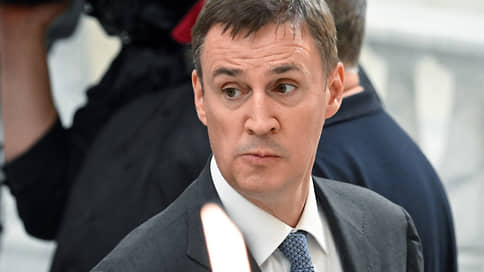The village will wait for money until winter
[ad_1]

The Ministry of Agriculture expects to resume preferential lending to agricultural enterprises by the end of the year, head of the ministry Dmitry Patrushev said yesterday at a joint meeting of the State Duma committees on agrarian issues and control. The need to “unfreeze” the issuance of short-term and investment loans, suspended in August after the increase in the key rate of the Central Bank, is explained by their demand and effectiveness – in fact, this is one of the main measures of state support for farmers, which remains popular throughout the agricultural year.
Speaking on September 6 at a meeting of the State Duma committees on agrarian issues and control, the Minister of Agriculture Dmitry Patrushev called the approximate timeframe for resuming the acceptance of applications for granting preferential loans to agricultural enterprises. It is assumed that agricultural producers will be able to receive them again at the end of 2023. The Ministry of Agriculture, as previously stated, is “actively working” together with the Ministry of Finance to increase the amount of funds under the program – we note that the ministries will have to expand the limits in the context of a deficit budget. Acceptance of applications for preferential loans to the agro-industrial complex was suspended in early August – and was caused by the previous increase in the Central Bank’s rate on July 21 from 7.5% to 8.5%. “A lot of money was required in order to service the already existing commitments,” Roman Nekrasov, head of the department of crop production, mechanization, chemicalization and plant protection of the Ministry of Agriculture, explained then the “freeze”.
The soft lending program for the agricultural sector was launched in 2017: since then, agricultural producers have been able to take short-term (for 1 year) or investment (from 2 to 15 years) loans at a rate of up to 5%. They were issued for the development of crop and livestock production, as well as for the construction, reconstruction and modernization of processing enterprises.
In the Ministry of Agriculture itself, the measure was repeatedly called highly effective and in demand. As Deputy Minister of the Ministry Elena Fastova noted, over the first five years of the program, the volume of short-term concessional loans to farmers increased many times over: if in 2017 they were issued by 137 billion rubles, then in 2022 – already by 913 billion rubles. It should be noted that the maintenance of already issued loans seriously limited the issuance of new loans. In this regard, during the years of the program, the Ministry of Agriculture several times (including in July 2023) proposed raising the maximum rate on them to 7%, but abandoned the idea following a public discussion. In the responses of business communities to the relevant draft resolutions, each time it was noted that the new rules would negatively affect the development of the industry.
Representatives of the State Duma Committee on Agrarian Issues and its head Vladimir Kashin spoke at yesterday’s meeting with similar claims, but in connection with the “freeze” of the program. The parliamentarians were also interested in the issue of resuming loans under another popular program – rural mortgages. Recall that under it, the acceptance of new applications for soft loans at a rate of up to 3% for the purchase of housing in rural areas was also suspended – but at the end of August, after the next, extraordinary increase in the key rate of the Central Bank from 8.5% to 12% (more see Kommersant of August 26). Dmitry Patrushev, responding to the deputies, said that the acceptance of new applications could be resumed at the beginning of 2024: it became more expensive to service obligations on previously issued loans, and it would be possible to receive new funds for the program after the budget for 2024 was agreed, he explained.
Although both programs of concessional lending are comparable in popularity, the attention of the Ministry of Agriculture is now focused on the first: this is due both to the possibilities of attracting additional funds and the importance of short-term loans for farmers throughout the agricultural year. It should be noted that there have already been precedents for expanding the volume of the program: for example, in March 2022, after raising the key rate of the Central Bank from 9.5 to 20%, an additional 25 billion rubles were allocated to subsidize loans for a period of a year.
[ad_2]
Source link






